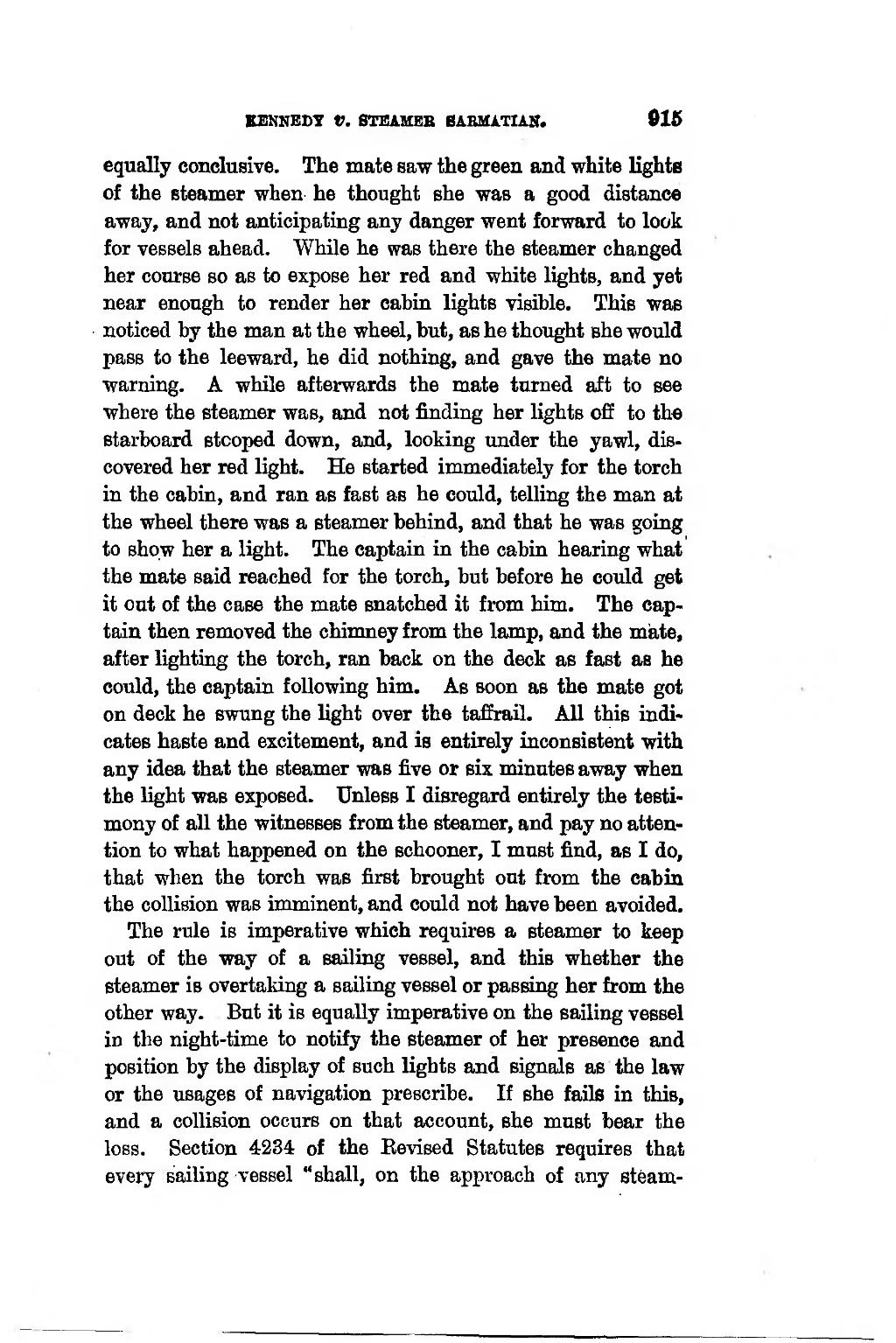EEKNEDT V. STBAUEB BABUÀTIAK. 915 �equally conolusive, The mate saw the green and white lights of the steamer wnen he thought she was a good distance away, and not anticipating any danger went forward to look for vessels ahead. While he was there the steamer changed her course so as to expose her red and white lights, and yet near enough to render her cabin lights visible. This was noticed by the man at the wheel, but, as he thought she would pass to the leeward, he did nothing, and gave the mate no warning. A while afterwards the mate turned aft to see where the steamer was, and not finding her lights o£f to the starboard stcoped down, and, looking under the yawl, dis- covered her red light. He started immediately for the torch in the cabin, and ran as fast as he eould, telling the man at the wheel there was a steamer behind, and that he was going to show her a light. The captain in the cabin hearing what the mate said reached for the torch, but before he could get it out of the case the mate snatched it from him. The cap- tain then removed the chimney from the lamp, and the mate, after lighting the torch, ran back on the deck as fast as he could, the captain foUowing him. As soon as the mate got on deck he swung the light over the taffrail. AU this indi- cates haste and excitement, and ia entirely inconsistent with any idea that the steamer was five or six minutes away when the light was exposed. Unless I disregard entirely the testi- mony of ail the witnesses from the steamer, and pay no atten- tion to what happened on the schooner, I must find, as I do, that when the torch was first brought out from the cabin the collision was imminent, and could not have been avoided. The raie is imperative which requires a steamer to keep out of the way of a sailing vessel, and this whether the steamer is overtaking a sailing vessel or passing her from the other way. But it is equally imperative on the sailing vessel in the night^time to notify the steamer of her presence and position by the display of such lights and signais as the law or the usages of navigation prescribe. If she fails in this, and a collision occurs on that account, she must bear the loss. Section 4234 of the Kevised Statutes requires that every sailing vessel "shall, on the approach of any steam- ����
